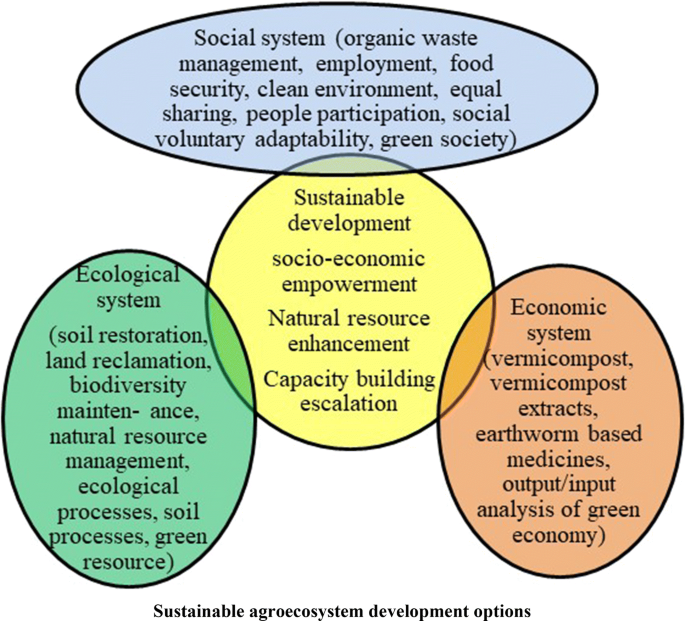Not known Factual Statements About Red Wiggler Express
Not known Factual Statements About Red Wiggler Express
Blog Article
Not known Facts About Red Wiggler Express
Table of ContentsThe Definitive Guide for Red Wiggler ExpressGetting The Red Wiggler Express To WorkSome Ideas on Red Wiggler Express You Need To KnowSome Ideas on Red Wiggler Express You Should KnowThe 30-Second Trick For Red Wiggler Express

If you go to all in song to the agricultural information of late, you're aware that soil wellness remains in decline throughout the world a problem that is having a dreadful effect on our food systems. The solution to this global trouble? Worms. Great deals of them. However how, you ask? Well, vermicomposting, obviously.
Some begin vermicomposting as a leisure activity and scale up, whereas others have the objective right from the start to develop a profit-making company. They might be farmers, neighborhood garden volunteers, business owners, landscaping companies, greenhouse growers, or team at establishments that produce food waste.
Some Known Incorrect Statements About Red Wiggler Express
Among one of the most common factors for venturing right into industrial vermicomposting is the need to reuse organic waste right into items that boost dirt and plant health and wellness. Dirt health has recently come to be an important global issue. The United Nations Food and Farming Company declared 2015 the International Year of Dirts to increase awareness of soil's function in food safety and security and healthy environment function.

In the interior of a land fill, natural products damage down in an anaerobic environment and launch methane, a greenhouse gas that is 25 times extra potent than co2 (Red Wiggler). A far better alternative to landfilling food waste and other organic materials is to vermicompost them. What was once considered waste can be changed into important products that nourish soils and plants
Red Wiggler Express Fundamentals Explained
For the previous 25 years in loads of files, publication chapters, and meetings, I have actually referred to the completed item of vermicomposting as vermicompost. This term is commonly made use of to identify the combination of earthworm spreadings (feces) and leftover bed linen and feedstock (natural material) that is harvested from worm beds.
After significant thought, I determined to use the term vermicast throughout this publication, for two essential reasons. One is due to the fact that many individuals use the terms garden compost and vermicompost reciprocally, not realizing that completion item of vermicomposting is qualitatively various from garden compost. I assume it would profit the vermicomposting sector to distance itself from the term compost in describing its items.
Composting is the regulated process of converting natural products right into an important dirt amendment under cardio problems making use of naturally created heat. On the other hand, a vermicomposting pile or worm bin should be kept to make sure that it does not warm up. In a compost heap the kinds and quantities of types of bacteria transform when the stack reaches thermophilic temperature levels of 106F (41C) or higher.
The Buzz on Red Wiggler Express
The bottom line marking the distinction in between compost and vermicast, however, (https://www.imdb.com/user/ur190811557/?ref_=nv_usr_prof_2) is that the latter has actually passed via earthworms. Hence, vermicomposting is much more comparable to livestock manufacturing than to composting; it needs pet husbandry abilities to appropriately look after the worms. A 2nd factor to use the term vermicast is to avoid item labeling that can be perplexing to consumers.
Worm casting is the last product of worm food digestion and can be merely recognized as worm manure. It is abundant in organic issue and advantageous microorganisms that create and aid your garden.
Sustainable gardening is practiced when no-cost or inexpensive amendments such as the use of worm casting from vermicomposting is included. Collected raw material in vermicompost bins. Image by directory Maggie Chen. Worms play this integral duty in the vermicomposting process and likewise in alleviating the effects of climate change. Garbage dump gas (LFG) is sent out as a natural by-product of organic material decay, such as food waste decaying in landfills.
In the past 2 a century after the Industrial Change, methane concentrations within the ambience have more than doubled due in big part to anthropogenic human-related activities (Bait). Around half of LFG launched from landfills is co2 and the rest is a tiny portion of non-methane organic compounds. Methane is a powerful greenhouse gas that continues to be in the ambience for a much shorter time in comparison to carbon dioxide but both are launched in the environment in big quantities from varying resources among which is organic product decomposition from garbage dumps
Some Known Details About Red Wiggler Express

Is there a food waste or vermicomposting system on your local school? It is seen that long-term and impactful activities on a system large range can begin with a solitary little worm. Worms may be generally connected with this gory and scary period, however when considering the interconnected impact of the vermicomposting procedure (on enhancing soil wellness and plant growth in your garden, alleviate environment modification, and empowering trainees) give some admiration to the abundant benefits that worms provide.
Report this page